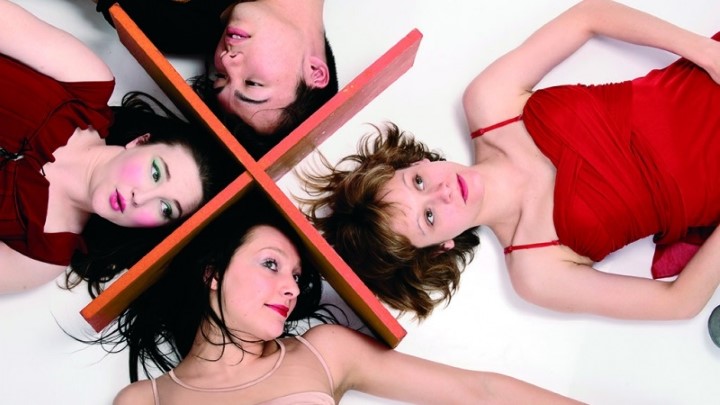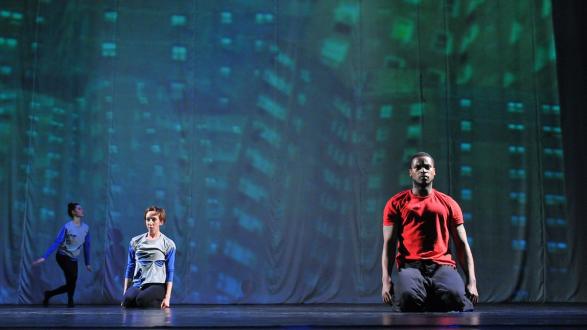In:
From scapegoating and vitriolic anti-immigrant rhetoric to loss of confidence in long-standing international institutions such as NATO, the United Nations, and even the European Union, there is disturbing evidence in recent years of a trend towards xenophobia, nationalism, and isolationism.
And yet, there appears to be a simultaneous trend in the opposite direction: A recent international poll carried out for the BBC World Service found that, for the first time, the majority of respondents see themselves more as global citizens than as citizens of their country. This trend is especially true in large developing countries.
Professional state and non-state public diplomacy practitioners are the traditional creators of opportunities for international engagement, but new circumstances call for new approaches. Public diplomacy and international engagement activities must expand beyond the professional diplomat’s sphere to include more initiatives developed by everyday citizens. It is time for citizens who value cross-border networking, positive and productive relationships with international peers, and intercultural understanding — and ultimately, international peace— to make themselves heard.
There are many powerful examples of citizen diplomacy, starting in the arts.
At the Short+Sweet International Theatre Festival, for example, private citizens use people-to-people artistic exchange to increase international understanding and cooperation on their own terms. Short+Sweet was first established in Sydney, Australia, in 2002, and since then has expanded to more than 50 short-form performing arts festivals throughout Australia and the world, including the United Arab Emirates, India, Malaysia, New Zealand, the Philippines, Singapore, Zimbabwe, and beyond: its North American debut is in Los Angeles in September 2016.

Now an international phenomenon, Short+Sweet has presented around 5,000 original works of theatre, dance and music, each ten minutes or less, while showcasing the talents of about 3,000 writers and 25,000 actors, directors, composers, musicians, and dancers across the globe. Short+Sweet provides international festival directors with well-developed systems and general rules to follow, which help the festival to maintain its unique Australian-born flavor. Local festival directors are then free to adapt the festival to reflect the aesthetics of their local culture.
"Short+Sweet aims to build a more creative, connected world, ten minutes at a time," says founding creative director Mark Cleary. "What we initially set out to do is present global audiences with entertaining and challenging theatre, while offering a valuable platform for writers, actors and other artists to build international networks while pushing their artistry to the next level. Meanwhile, almost by accident, we developed a unique way to enhance Australian soft power, by bringing our artistic format and passion for short-form performing arts to nations across the world."
In this case, a project that was started by citizens also made its way into the hands of a professional diplomat with the know-how to expand its reach. Michael Wood, Australia’s Consul-General in Chicago, first saw a Short+Sweet theatre festival in Singapore, where he was serving as Deputy High Commissioner. Later, he worked with Cleary to bring the festival to India, where it still enjoys success in Chennai, New Delhi, Kolkata, Bangalore, and Mumbai.
"Public diplomacy is perceived as something that diplomats practice," said Wood. "But public diplomacy that is generated at the grassroots level is one of the most effective ways for countries to tell us who they are."
Increasing grassroots citizen diplomacy initiatives can make a difference.
Throughout history, even in the worst of times, performing artists have often led the way in reminding us of our shared humanity. But creative citizen diplomacy efforts do not only come from performers. The internet and social media make it feasible for world citizens of many walks of life to engage with global audiences, share their culture and build international relationships. Israel Loves Iran and Iran Loves Israel are social media platforms launched by Israeli and Iranian citizens that aim to connect people in both countries to increase intercultural understanding in the interest of peace building and non-violent conflict resolution. The model, which launched in 2012, has expanded throughout the globe. Now, platforms exist on Facebook for Israel Loves Palestine, Germany Loves Iran, France Loves Israel and Iran, and more.
While Short+Sweet and Israel Loves Iran are impressive in scale, global citizens also make a difference when they participate in smaller public diplomacy activities that promote positive international relationships. If properly executed, activities such as making YouTube videos to garner support for global causes, hosting international exchange students, and sharing professional knowledge with international peers can cumulatively help the world become more understanding of other cultures, reinforce nations’ other soft power efforts and, ultimately, serve to reduce xenophobia and intercultural conflict.
As a global community, we have a choice to make. We can fall in line with the news reports of xenophobia and isolationism. Or we can join the increasing number of people who see themselves as citizens of the world. Certainly, we can count on diplomats to continue to share culture and work toward creating stronger international relationships. But citizens have more power than they often believe when it comes to both supporting these efforts and creating their own initiatives. Increasing grassroots citizen diplomacy initiatives can make a difference. Now it is up to all of us.
____________________
Michele Johnsen is a Pacific Council member and the president of Ignite Global Good, LLC, a strategic communications company that serves clients at the intersection of social justice, human rights, and international engagement. Follow her @MicheleJPR.




